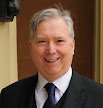Recruitment problems affect hospital and GP services.
Recruitment problems are affecting both Hospital and GP services in West Cumbria. Last week’s Whitehaven News had a front page headling suggesting thatt there will be serious staffing problems in West Cumberland Hospital’s A&E department this summer unless gaps in recruitment can be filled.
Hospital chief Ann Farrar has written to health trusts across the north asking for help with medical staffing in order to maintain services. It is still unclear what will happen if vacancies cannot be filled. Health chiefs are looking at a more joined up recruitment process for all local health jobs instead of trusts working in isolation.
Concerns have also been expressed this week about the effect on local GP services of a shortage of doctors whcih is part of a natioanl problem.
National doctors’ leaders say the lack of GPs means they cannot provide care that is safe and of high quality. And the British Medical Association (BMA) conference yesterday warned the government that GP services across the country are at breaking point, saying they provide “conveyor belt care at breakneck speed”.
Dr David Rogers, Whitehaven GP and medical director for the Cumbria Clinical Commissioning Group, said there were issues surrounding GP recruitment both locally and nationally.
“There are over 450 GP training places that are not filled across the country,” said Dr Rogers, who is aware of the local practice facing difficulties. “A practice has highlighted concerns – because of staff issues – that they are really under pressure and the potential for serious incidents as a result of that pressure. They haven’t got as many doctors as they have had and they are struggling to recruit.”
A local practice told The Whitehaven News that despite local and national advertising it had been having difficulties recruiting and suggested there is a particular need to make rural vacancies more attractive. They said
“The practice continues to provide a full service of excellent patient-centred care. Steps are already in place to make sure that we optimise the skills of the clinical staff resulting in better access to our diverse services for patients. There is already a new clinical triage system (most urgent cases dealt with first) to ensure that our resources are optimised in the most effective way. We believe these changes are a response to difficult times and are innovative in their own right.”
Dr Rogers also said that people should be encouraged to talk to their local pharmacist, or book an appointment with a nurse rather than always assuming they need to see a GP.
“There isn’t a pool of staff that we can parachute in,” he said, adding that most other practices will also have experienced difficulties.
“We have agreed to look at how we change recruitment. The biggest risk in the system is recruitment, if you haven’t got the people, you can’t do the job,” he added.
He said help was also being given to the practice from Cumbria Learning and Improvement Collaborative (CLIC) and that there had been discussions with the locality primary care team and area team.

